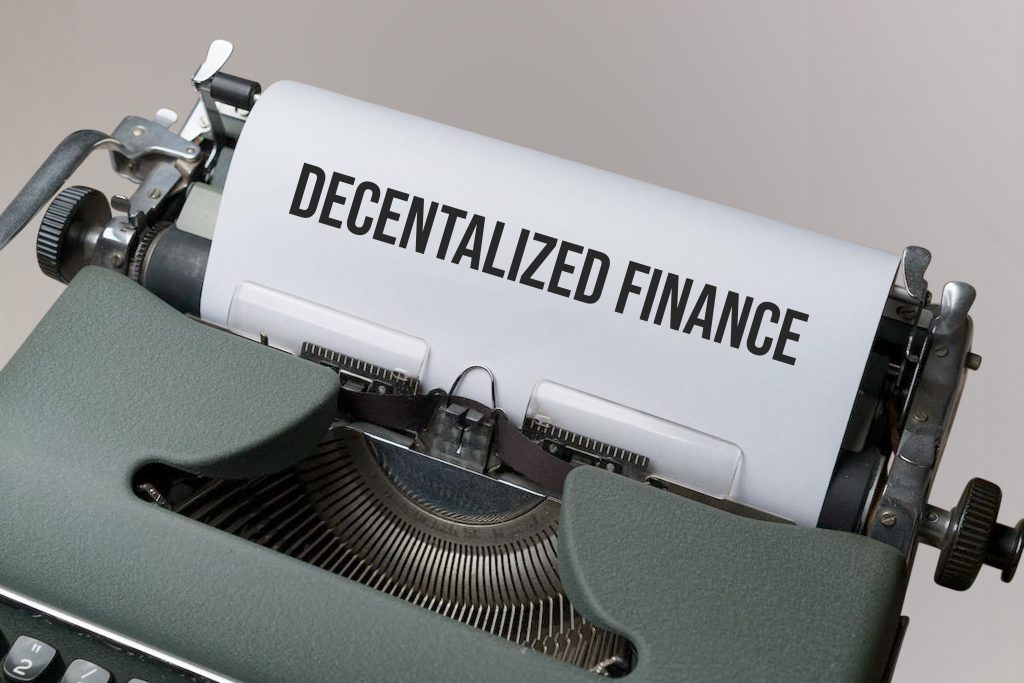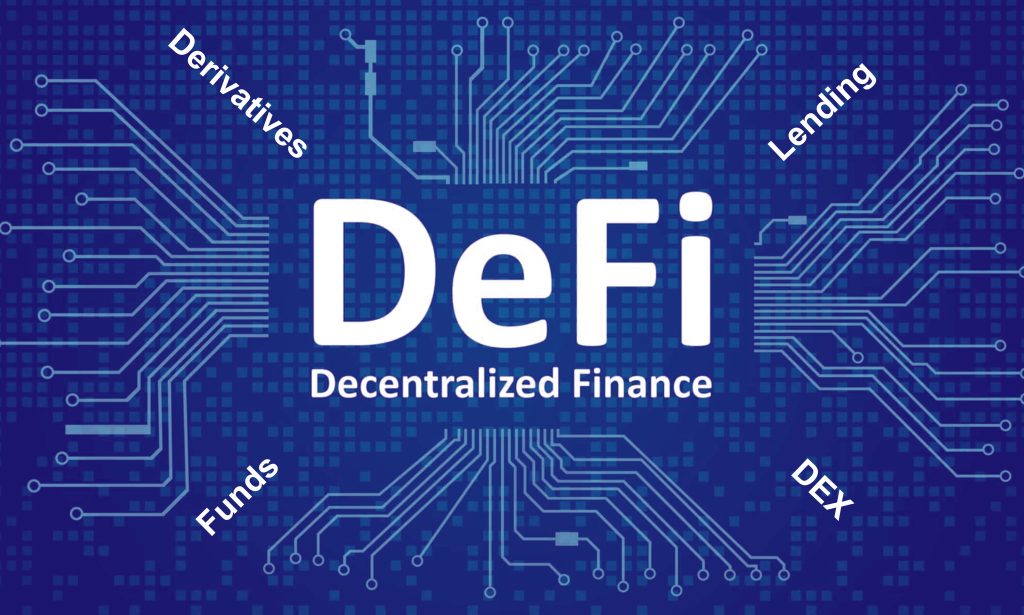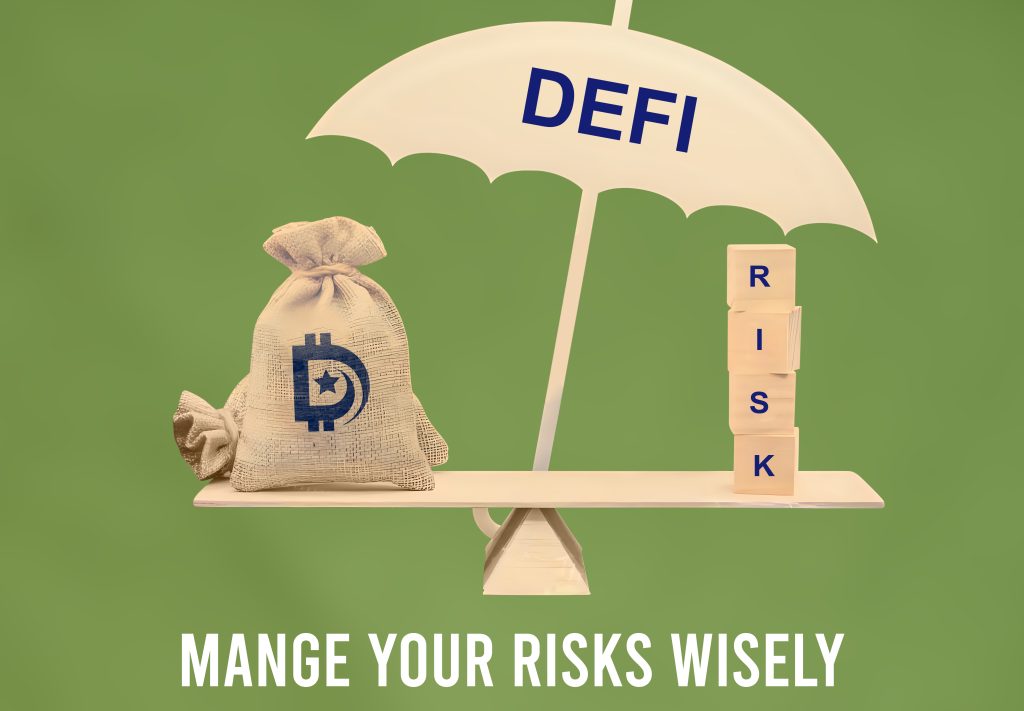What is Decentralized Finance and Why is it Important?
Decentralized Finance, or DeFi, is changing the world of money and banking as we know it. This digital financial trend is moving us away from traditional banks and into a future where managing money is more open, accessible, and in our control. In this guide, we will explore what DeFi is, how it works, and why it is becoming such a big deal in the world of finance.

What is DeFi or Decentralized Finance?
Decentralized Finance, commonly known as DeFi, represents a shift in the financial sector towards a system that operates on blockchain technology. It is a model where financial products and services exist on a decentralized network, which means they are not controlled by traditional financial institutions like banks or governments. Instead, DeFi leverages smart contracts on blockchains, primarily Ethereum, to execute financial transactions.
What is Blockchain?
Blockchain is the underlying technology that makes DeFi possible. It is a digital ledger that records transactions across a network of computers. Imagine it as a chain of digital blocks, each holding a batch of transaction data. Once a block is filled, it is linked to the previous block, forming a chain of data known as the blockchain.
The key characteristics of blockchain include:

- Decentralization: Unlike traditional ledgers controlled by a single entity (like a bank), a blockchain is distributed across many computers. This reduces the risk of central points of failure and interference.
- Transparency: Every transaction on a blockchain is visible to anyone with access to the network, promoting a level of openness not typically found in traditional finance.
- Security and Immutability: The moment a transaction finds its place on the blockchain, it becomes permanent. This permanence is secured through cryptographic techniques, making the blockchain highly resistant to tampering and fraud.
- Consensus Mechanisms: For a transaction to be added to the blockchain, it must be verified by multiple network participants, ensuring the accuracy and trustworthiness of the data.
It is also important to note that blockchain technology not only powers cryptocurrencies like Bitcoin and Ethereum but also enables the creation of smart contracts and decentralized applications (dApps), which are crucial for DeFi platforms.
How does Decentralized Finance work?
Decentralized Finance (DeFi) operates on the principles of blockchain technology, enabling financial services without central intermediaries. Here is how it typically works:
- Smart Contracts: Central to DeFi are smart contracts, which are automated agreements where the conditions are encoded directly into the software. These contracts are designed to independently carry out transactions once certain predefined criteria are satisfied, thus bypassing the requirement for middlemen.
- dApps and Protocols: DeFi services are offered through decentralized applications (dApps) and protocols built on blockchain networks. These dApps provide various financial services, including lending, borrowing, trading, and asset management, accessible to anyone with an internet connection.
- Liquidity Pools: Many DeFi platforms use liquidity pools. These are pools of tokens or cryptocurrencies that are locked in a smart contract to facilitate trading, lending, and other financial activities. Users who provide their assets to these pools are often rewarded with fees or interest.
- Tokenization: DeFi often involves the use of tokens, which represent a variety of assets, including cryptocurrencies, fiat currencies, or other types of assets. This tokenization makes assets easier to trade on DeFi platforms.
- Decentralized Exchanges (DEXs): Unlike traditional exchanges, DEXs allow users to trade assets directly with each other without the need for a central authority to oversee the transactions.
To put it simply, DeFi takes the basic premise of blockchain to create an open, accessible, and transparent financial ecosystem where users have more control over their assets and personal data.
How does it differ from Centralized Finance?
Defi is fundamentally different from Centralized Finance (CeFi) in several ways:
- Control and Oversight: In CeFi, banks, and other financial institutions have control over financial transactions and your funds. DeFi, on the other hand, allows you to have complete control over your assets without the need for intermediaries.
- Accessibility: DeFi is accessible to anyone with an internet connection, removing geographical barriers that are often present in CeFi.
- Transparency: All DeFi transactions are recorded on a public blockchain, making them transparent and immutable. In contrast, CeFi transactions are recorded internally by institutions, which may not be publicly accessible.
- Flexibility and Innovation: DeFi is known for its innovative financial products and services, which are being developed at a rapid pace. CeFi is often bound by traditional products and slower to innovate due to regulatory constraints.
- Regulation: CeFi is heavily regulated to protect consumers, whereas DeFi operates in a more unregulated space, which can offer freedom but also comes with increased risk.
What are the Pros and Cons of DeFi?
DeFi offers several advantages but also comes with its own set of challenges. Understanding these can help you navigate this space more effectively.

Pros of Decentralized Finance
- Accessibility: DeFi makes financial services accessible to anyone with an internet connection, including those who are unbanked or underbanked.
- Autonomy and Control: Users have full control over their assets and can interact with DeFi platforms directly without needing intermediaries like banks.
- Transparency: All transactions are recorded on a blockchain, ensuring a high level of transparency and auditability.
- Innovation and Variety: The DeFi space is rich in innovation, offering a wide range of financial products and services.
Cons of Decentralized Finance
- Complexity: DeFi can be complex and might be overwhelming for beginners.
- Security Risks: While blockchain is secure, DeFi platforms and smart contracts can have vulnerabilities.
- Market Volatility: DeFi markets can be highly volatile, posing a risk to investments.
- Regulatory Uncertainty: The lack of clear regulation in many regions can create uncertainty and potential risks for users.
How to Get Started in Decentralized Finance
Are you ready to get started? If so, here are a few key steps to begin:
- Educate Yourself: Understand the basics of blockchain and how DeFi works. The primary focus of this step is to become acquainted with the ideas and important phrases.
- Set Up a Digital Wallet: Choose a secure digital wallet to store your cryptocurrencies and interact with DeFi platforms.
- Acquire Cryptocurrency: Buy cryptocurrency, like Ethereum, which is widely used in DeFi platforms, from a reputable exchange.
- Choose DeFi Platforms: Research and select DeFi platforms that meet your needs, whether it is lending, borrowing, trading, or investing.
- Start Small and Diversify: Begin with small investments and diversify your portfolio to mitigate risks.
- Stay Informed and Cautious: Keep up with DeFi news and developments. Always be cautious, as the DeFi space is rapidly evolving and can be risky.
Wrapping Up
In conclusion, Decentralized Finance (DeFi) is reshaping the way we think about and handle money. It is an exciting area that offers more freedom and options in finance, making it easier for everyone to access financial services. However, like any new technology, DeFi comes with its own set of challenges, including security risks and market ups and downs. As you start exploring DeFi, remember to keep learning, stay cautious, and think carefully about your choices. This approach will help you make the most of what DeFi has to offer while staying safe on your financial journey.
